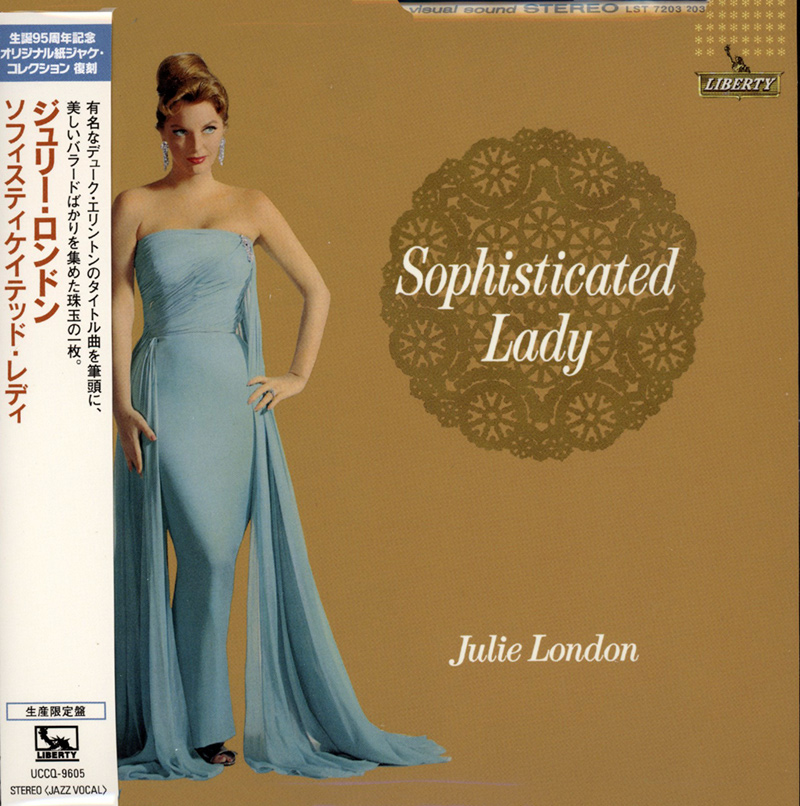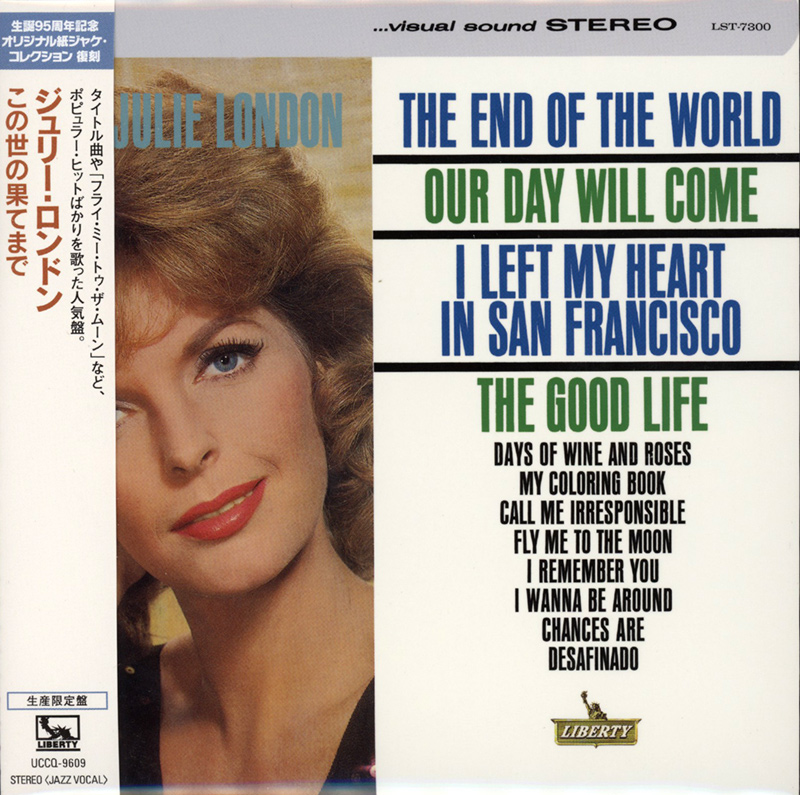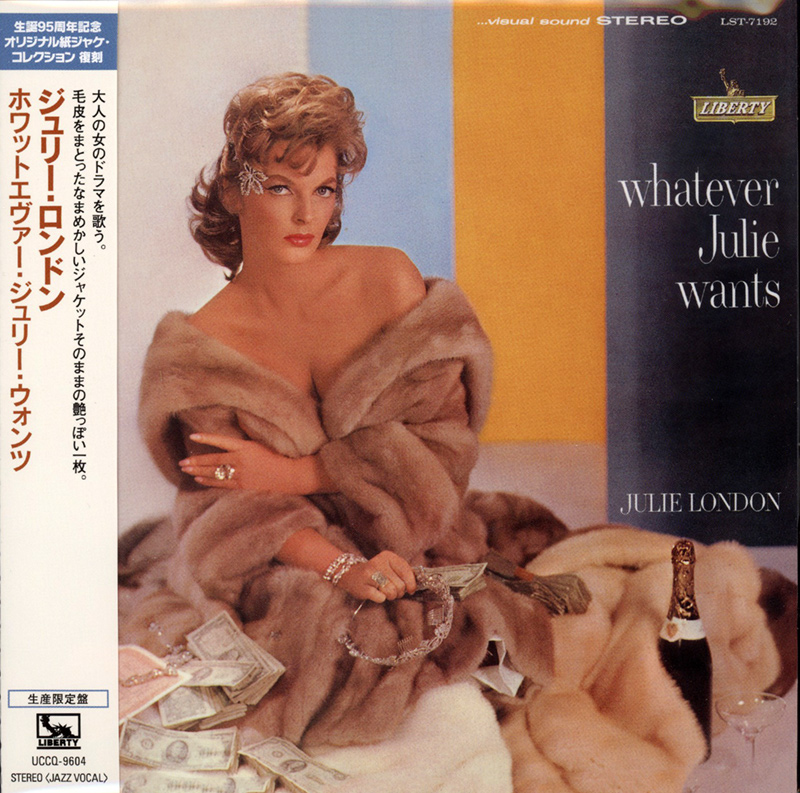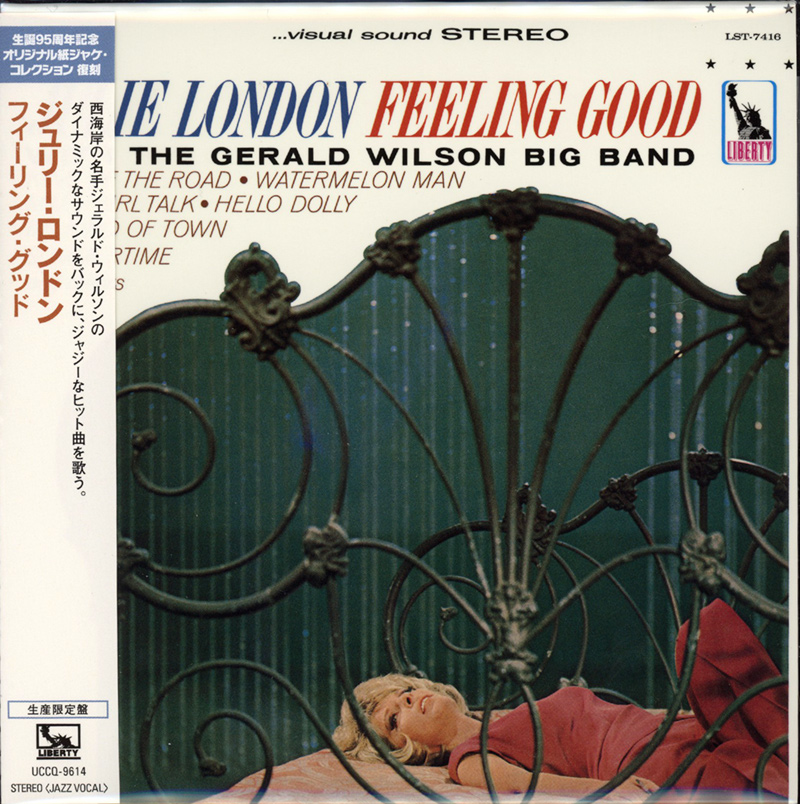Logowanie
Dziś nikt już tak genialnie nie jazzuje!
Bobby Hutcherson, Joe Sample
San Francisco
SHM-CD/SACD - NOWY FORMAT - DŻWIĘK TAK CZYSTY, JAK Z CZASU WIELKIEGO WYBUCHU!
Wayne Shorter, Freddie Hubbard, Herbie Hancock, Ron Carter, Elvin Jones
Speak no evil
UHQCD - dotknij Oryginału - MQA (Master Quality Authenticated)
Chesky! Niezmiennie perfekcyjny
Winylowy niezbędnik
ClearAudio
Double Matrix Professional - Sonic
najbardziej inteligentna i skuteczna pralka do płyt winylowych wszelkiego typu - całkowicie automatyczna
Julie London
Sophisticated Lady
- Julie London - vocal
Seria: visual sound STEREO
Reedycja rzeczywiście mistrzowsko zaaranżowanych, wykonanych i nagranych (!) standardów, jakże precyzyjnie opisujących muzyczne gusty melomanów z połowy XX wieku. Piosenka to misterna kompozycja, konkurująca z najbardziej wyrafinowaną myślą inżynierską. Proporcje i relacje między planami, brzmieniem i kolorystyką każdego z instrumentów lub ich sekcji - to wiedza niemal tajemna. Albo usytuowanie głosu wykonawcy w dość intymnej relacji z podkładem. Tak, dokładnie tak - intymnej zależności. Aranżacja - to mistyczna wiedza o smaku i niepowtarzalności oraz wyrafinowaniu odmiennych stylów. Wreszcie dramaturgia każdej z kompozycji - robota wprost jubilerska. Kiedy wybrzmi ostatni akord każdej z tych płyt - pozostaje w nas nie tylko tęsknota i nostalgia. Zapisany zostaje na palecie naszej wrażliwości nowy, często wcześniej nie znany kolor nastroju. A to przecież jest... poezja! Każda z tych kompozycji to opowieść. To historia, której tak chętnie słuchamy. Dzięki tym nagraniom - wracamy do świata... bajki. I tylko na jedno pytanie nie potrafię znaleźć odpowiedzi. Dlaczego i z jakiego powodu ta koronkowa, eteryczna, granicząca z transcendencją wartość estetyczna budowana tą muzyką niemal bezpowrotnie minęła? Niemal, bo u nas, w Clubie CD - jest niezmiennie piękna i żywa. Julie London - w naszej ofercie Sophisticated Lady Review by Nick Dedina [-] "Sophisticated" is the right word to describe Julie London's cool vocal approach; it can be shoved into the background, but if you listen closely there's a lot of turmoil going on under its seemingly calm surface. Similar to Chet Baker's unruffled way with a lyric, London's self-described "thimble full of a voice" ends up describing how pain hasn't quite iced over all her emotions rather than proving how unfeeling she is. Also like Baker, so many of her best recordings are steeped in the style and mood of laid-back West Coast jazz. Sophisticated Lady is one of a string of records London cut in the early '60s with less of a jazz feel than most of her sessions from the '50s, but it's still a worthy album. If it's not exactly an essential session, it is a good one, and the backing orchestra is to blame for the album's shortcomings -- not the vocalist. The charts balance a mellow -- very mellow -- kind of 1940s-era swing feeling (think of Tommy Dorsey or Glenn Miller doing a slow-dance number) with heavy string statements and semi-classical passages. They aren't particularly obtrusive or bad charts, but they are undistinguished, and the arranger for the date doesn't even get a credit on the album sleeve. It's these arrangements, not London's vocal performance, that make this a mediocre, but still worthy, album. (To hear how this approach is done correctly, just listen to Nelson Riddle's beautiful and more jazz-flavored work on Frank Sinatra's exquisite Nice 'N' Easy album.) That's not to say it's not a good disc, though, and standout tracks include Cole Porter's witty "booze as a cure for heartache" number "Make It Another Old-Fashioned Please" and three songs by writers associated with cool jazz. The Wolf/Landesman cut "Spring Can Really Hang You up the Most" has deservedly earned its status as a standard, but the neglected "Absent Minded Me" by Bob Merrill and Bobby Troup's "Where Am I to Go" deserve to be rediscovered and more widely recorded.





































